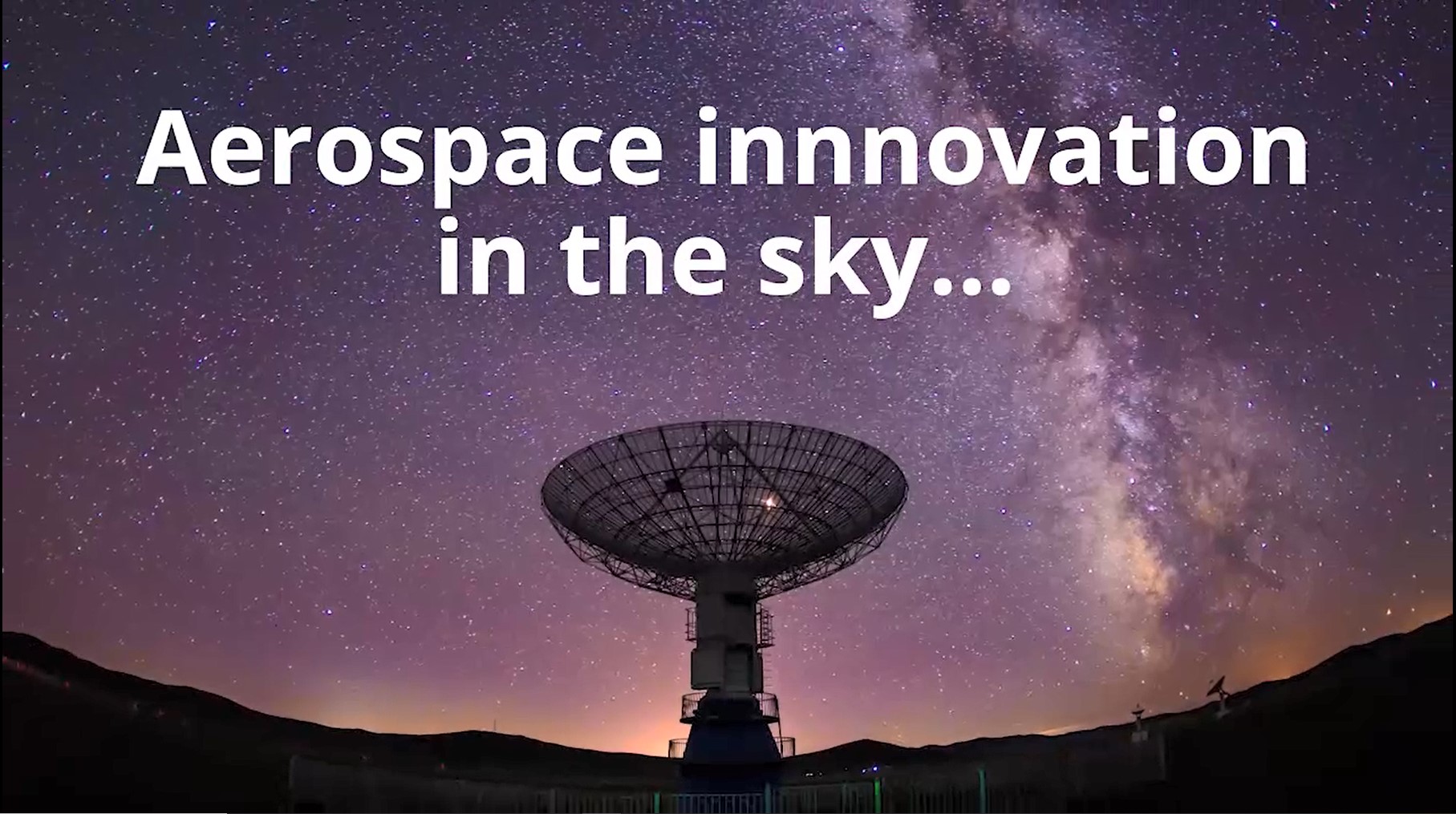Aerospace innovation reaches new heights
Increasing earthly challenges call for extraterrestrial solutions – and space research is opening up a range of possibilities in sectors from agrifood and healthcare to telecoms.
15/09/2022
The New Space Economy is booming, driven by the commercialisation of the traditional and institutional space sector.
Italy plays a leading role in the global aerospace industry, with a range of startups in areas such as:
- agrifood
- energy
- environment and infrastructure
- chemicals and new materials
- telecoms
- mobility
- transport and tourism
- health and biotech
Agrifood
According to a 2021 OECD-FAO Report, the global demand for agrifood products looks set to continue growing annually between 2021 and 2030 by more than 1%.
The high environmental impact and low efficiency of traditional production methods – not to mention the scarcity of resources – means farming has to undergo a technological transformation.
Aerospace can play a strategic role in this transformation – and there is a wide range of applications for space tech in the sector. These include:
- Satellite monitoring for precision agriculture
- Satellite positioning for autonomous farm vehicles
- Developing crops that are more resistant to disease and adverse weather conditions
- Efficiency-enhancing technologies and soilless culture
- Improving food safety and security
The REBUS project, for example, is developing bio-regenerative life support systems based on the integration of organisms such as plants, fungi, bacteria and cyanobacteria. This is designed to maximise the use of available resources and minimise the use of external resources by recycling organic matter.
Elsewhere, the SOLE project is working to develop a cultivation chamber for use in space, with LED lighting able to enhance the nutraceutical properties of micro-vegetables.
In 2019 the Department of Agriculture of the Università degli Studi di Napoli Federico II set up the first laboratory in Europe dedicated to the characterisation of plants for regenerative life support systems. The laboratory stems from a collaboration with the ESA within the scope of the MELiSSA (Micro-Ecological Life Support System Alternative) programme.
Energy
The energy-supply and production sector is already making substantial use of many space technologies such as earth and atmospheric observation, satellite navigation and advanced materials developed for space exploration missions. This technology will grow in the future to meet the challenges posed by the scheduled space exploration missions.
Environment and infrastructure
Infrastructure monitoring is time-consuming and expensive, and can be hard to implement. However, satellite technologies are being put to good use to overcome these limitations.
As well as satellite imagery, radar and other sensors are able to provide extremely precise data and measurements to enable accurate monitoring. This makes it easier to plan inspections and maintenance work. Synthetic Aperture Radar (SAR) technology allows radar imaging of areas under investigation.
Chemicals and new materials
The aerospace sector is constantly working on ways to improve technical materials while reducing costs and increasing safety.
There is huge investment in this sector, in areas such as managing product life cycles and finding ways to reduce fuel with lighter materials and metamaterials (materials that don’t exist in nature) with unusual electromagnetic characteristics.
Telecoms
Aerospace tech is making data transmission global, overcoming the barriers of long distances and rough terrain. Back in 2021, the Italian start-up Stellar Project launched LaserCube, a low-power, high-performance miniaturised laser communication terminal that brings innovation in high-speed data transmission between satellites.
Mobility, transport and tourism
There is rapid change in transport and tourism, propelled by innovations in aerospace. The worldwide market of Global Navigation Satellite System (GNSS) satellite navigation and positioning technology is showing strong growth. Implementation of services such as user position authentication are being heralded as the next step towards smart mobility.
Aerospace technology is also being widely applied in the railway sector, bringing to the market new railway communications and rail network safety products. For example, Italian system engineering company Intecs Solutions is working on communications resilience and the capability of sending and receiving ground data in the Ka-band frequency.
Health and biotech
There are increasing pressures on national healthcare systems and this is prompting a shift towards a mixed healthcare model, blending telemedicine and home care.
The European Space Agency (ESA) and the Italian Space Agency (ASI) are using data from Earth observation to improve public health by monitoring air and water quality and pollutants. Elsewhere, the Earth Cognitive System for Covid-19 (ECO4CO), funded by the European Space Agency, is exploiting Earth observation data to tackle Covid-19 and other potential future pandemics.
Space technology can provide real solutions for the world’s challenges – and Italian companies are working at the forefront of innovations in environmental and economic sustainability.

